Strange & Shining: Gallery of Mysterious Night Lights
Odd Light Shows
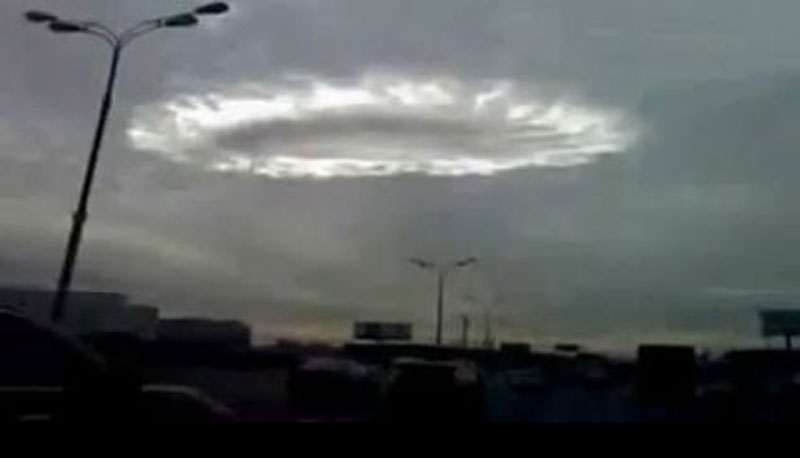
New evidence suggesting neutrinos can travel faster than the speed of light has shined a spotlight on how light moves and acts. Light plays off our atmosphere in strange and mysterious ways, sometimes sparking claims of UFO sightings and paranormal activity. From "shining halo clouds" to sprites and massive light spirals, the otherworldly photos of light phenomena in this gallery are naturally-occurring or man-made illusions.
Above is a still from video taken last October and uploaded onto YouTube of a giant halo in an overcast sky over Moscow. The unusual sight ignited UFO rumors, but was easily explained by meteorologists. The "clouds" was just an optical illusion caused by sunlight hitting a cloud at just the right angle. The cloud's round shape is likely what is known as a hole-punch cloud. These clouds occur within cirrostratus clouds, which are often composed of ice crystals and drops of water that are below freezing temperature but still in liquid form. When cirrostratus clouds are disturbed by planes or strong winds, the droplets can freeze instantly or evaporate, the latter of which will form the hole.
Related: What are the Marfa Lights?
Sky Spiral
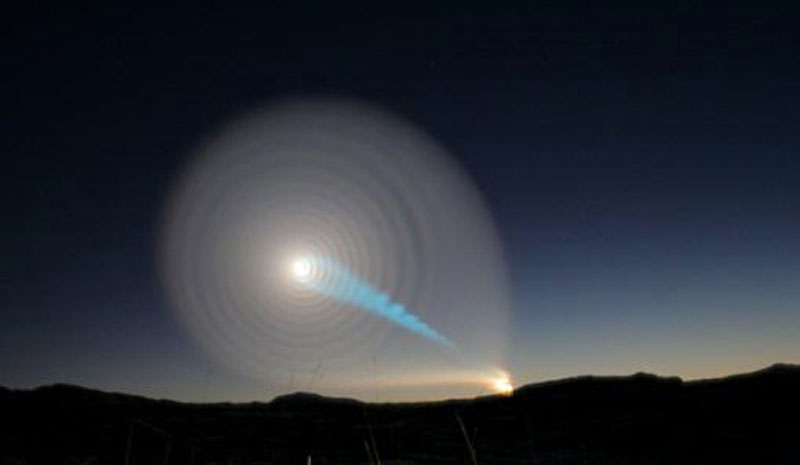
The above unaltered image may like a wormhole to another dimension, but it was actually caused by a Russian missile that failed just after launch. The spectacular spiral light show appeared in December 2009 in the sky above northern Norway. According to Russia's defense ministry, a botched Bulava ballistic test missile spun out of control, creating the mysterious rotating spiral effect.
Solar Pillar
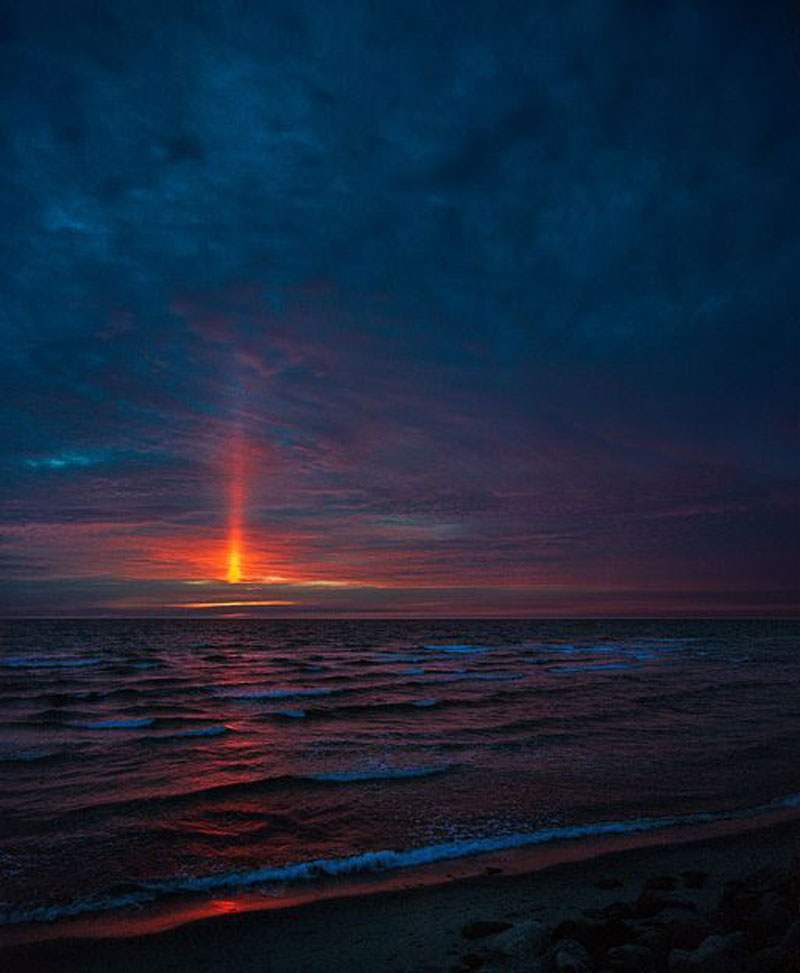
This shot, taken in May 2010 at Nødebohuse, North Zealand, in Denmark, shows a natural phenomenon referred to as a solar pillar. These vertical beams of light areusually created in cold air by ice crystals falling from high clouds. The crystals are sometimes flat, and air resistance will cause them to float flatly, rather than knifing downward on edge. As sunlight reflects off the crystals, the resulting column of light shining up into the sky seems to come from the sun, but in reality it's just a few miles away from the observer.
Sprite Sighting
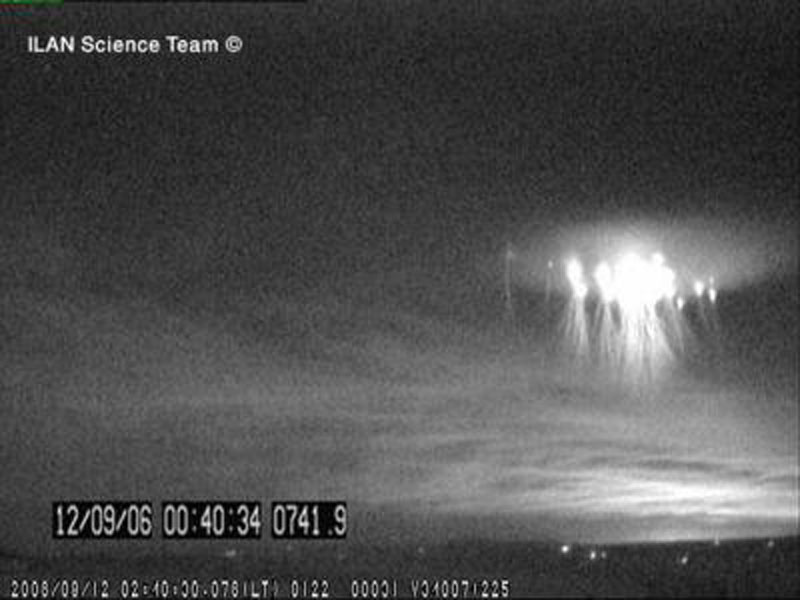
A natural weather phenomenon, sprites appear as flashes high in the sky. They are triggered by thunderstorms and are created when lightning from thunderstorms excites the electric field in the atmosphere above the storm. The resulting dancing flashes of bright light can form as balls of electricity, streaks, tendrils or a combination of both, such as in the above image.
Emerald Sunset Glow
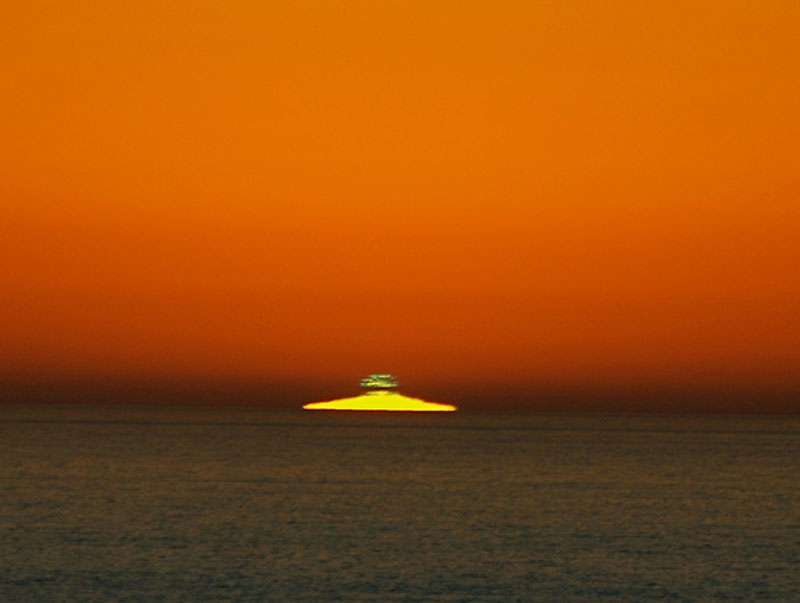
Just above this sunset, a peculiar light glows green. This "green flash," caused by light refracting in the atmosphere, is rarely seen. But it was captured by Nigella Hillgarth, director of the Birch Aquarium at the Scripps Institution of Oceanography in San Diego, as she took a routine photo of the sun sinking into the Pacific.
Sign up for the Live Science daily newsletter now
Get the world’s most fascinating discoveries delivered straight to your inbox.
A Halo of Light
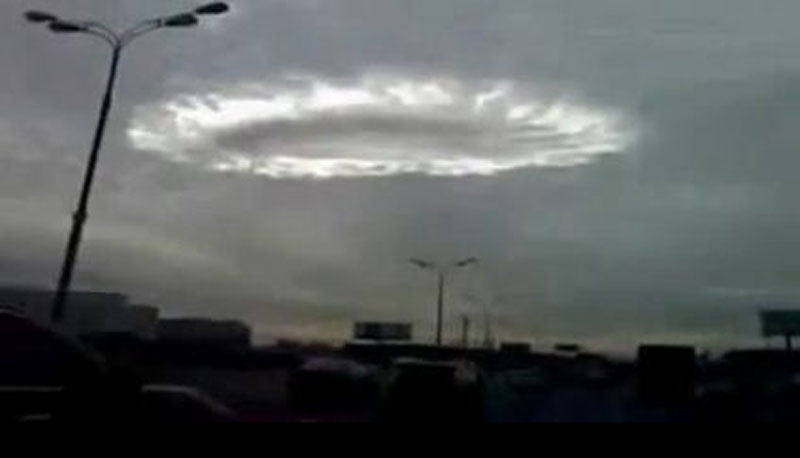
Above is a still from video taken last October and uploaded onto YouTube of a giant halo in an overcast sky over Moscow. The unusual sight ignited UFO rumors, but was easily explained by meteorologists. The "halo cloud" was just an optical illusion caused by sunlight hitting a cloud at just the right angle. The cloud's round shape is likely what is known as a hole-punch cloud. These clouds occur within cirrostratus clouds, which are often composed of ice crystals and drops of water that are below freezing temperature but still in liquid form. When cirrostratus clouds are disturbed by planes or strong winds, the droplets can freeze instantly or evaporate, the latter of which will form the hole.
Stunning Sundogs
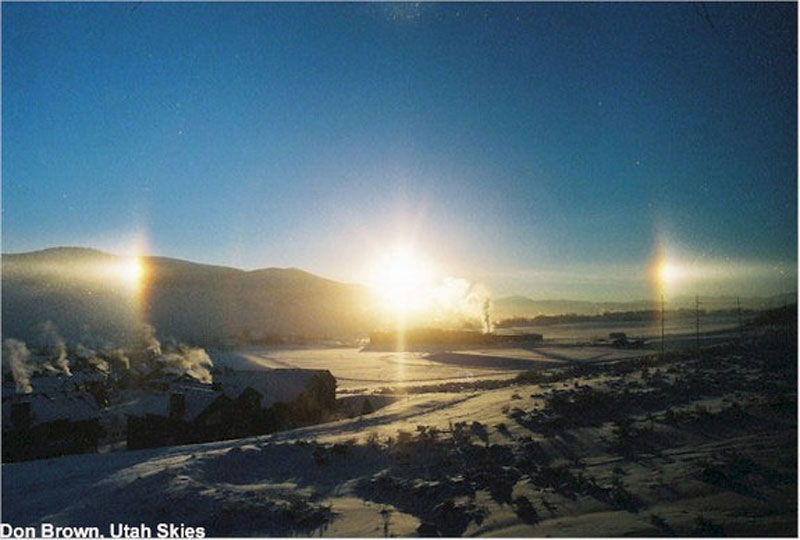
A sundog is another atmospheric optical phenomenon caused by the refraction of sunlight by tiny ice crystals in clouds. Also known as "mock" suns or parhelia, sundogs appear on each side of the sun. The ice crystals must be oriented horizontally and the observer's line of sight must be close to horizontal to see the sundogs. This beautiful photo was captured at sunrise on a cold morning in Park City, Utah. Above the Trans-Alaska Pipeline in midwinter, sundogs meld into a halo around the sun.
Lime Light
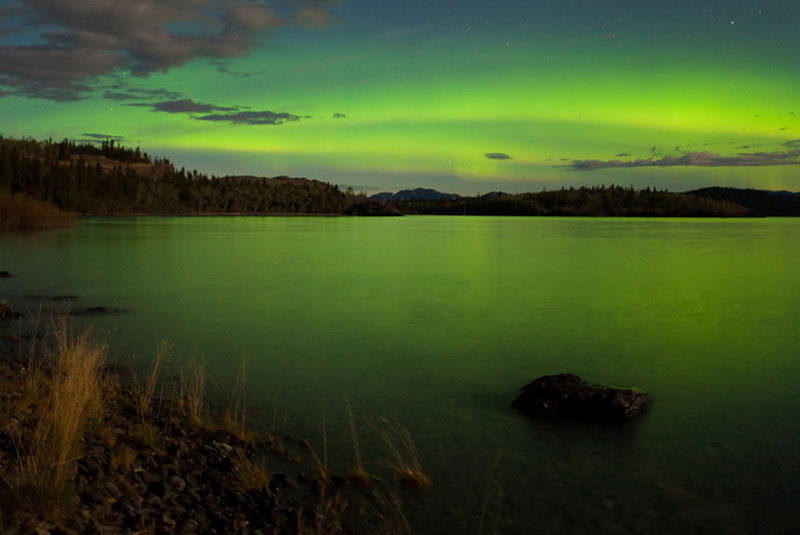
The sky appears to glow an eerie green hue as the intense aurora borealis, also known as the northern lights, shine in the moonlit night. The striking image is mirrored on Lake Laberge, Yukon Territory, Canada.
Ice Crystal Arc
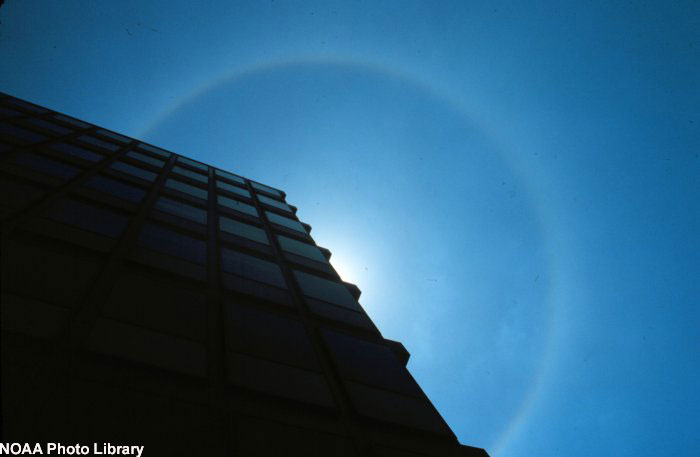
Solar halos are also caused by small, flat, six-sided, ice crystals that float down parallel to the ground. When an observer passes through the same plane as many of the falling ice crystals near sunrise or sunset, the alignment makes each crystal act like a miniature lens. These "lenses" refract sunlight into our view and create what appears to be a bright circle around the sun. Shown above is a photo of the sun peeking from behind a building, with a 22-degree solar halo arc shining around it.
Haloes and Dogs
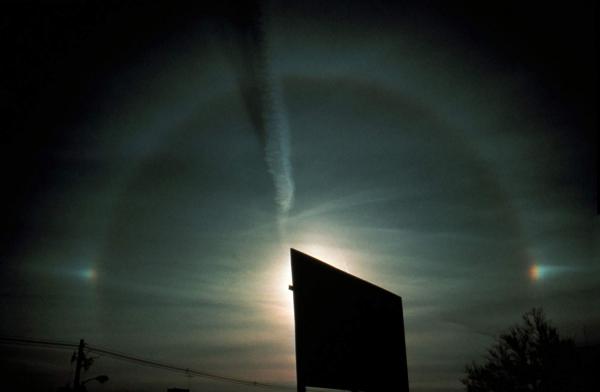
Partial halo with parhelia (sun dogs) on both sides of halo.
'Night-Shining' Clouds
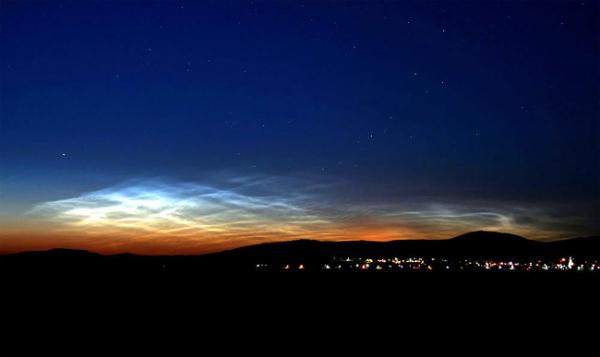
This image shows one of the first ground sightings of noctilucent clouds in the 2007 season over Budapest, Hungary on June 15, 2007. To learn about how these clouds form and when and where you can see them, click here.










